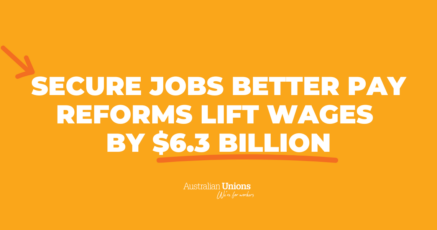In Australia, your rights as a worker can differ when it comes to your type of employment.
Understanding these differences is crucial because it affects your job security and what on-the-job wages and entitlements you receive.
One of the factors that determines your rights is whether you are employed on a permanent basis or a casual basis.
Permanent workers’ rights
Full-time
Full-time employment usually means working around 38 hours per week, although this can vary depending on the award or agreement that covers your workplace, or the terms of your employment contract.
As a full-time permanent employee, you are entitled to all of the minimum conditions laid out in the National Employment Standards as well as the entitlements included in the award or agreement that covers your workplace.
Part-time
Part-time permanent employment usually means working less than 38 hours per week.
You are entitled to the same amount of leave as a full-time employee, relative to the number of days you work. For example, if you work two days a week, and a full-time worker would be given four weeks off, this means that your entitlement to four weeks’ leave would equate to eight days off.
Pay and working hours
As a permanent worker you will earn a steady, reliable income. You may also benefit from bonuses, annual pay increases, and other financial benefits.
Like all employees, you are entitled to superannuation contributions from your employer, which must be no less than 11.5%, of your ordinary earnings (unless you are under 18 years of age and work less than 30 hours in a week).
Job security and termination
Permanent employees’ job security is greater compared to casual workers. You are also entitled to notice of termination and, in some cases, a redundancy payment.
After completing a minimum employment period (usually 12 months for small businesses, and 6 months for larger), you are protected by unfair dismissal laws. This means if you believe you are sacked in a way that is harsh, unreasonable or unjust, you can make an unfair dismissal claim to the Fair Work Commission within 21 days. If you are a union member, your union will be able to help you lodge this appeal and support you throughout the process.
Casual workers’ rights
Casual employees are hired on a more flexible arrangement and don’t have guaranteed hours. While you may be offered ‘full-time’ hours at times, your shifts can fluctuate from week to week.
Casual workers are entitled to some, but not all, of the benefits that permanent workers are entitled to. It is important to remember that casual workers have the same rights as all workers to join and to be represented by a union.
Pay and working hours
As a casual worker you will typically earn a higher hourly rate compared to a permanent employee, receiving a ‘casual loading’. This premium compensates for the absence of benefits like paid annual leave.
The amount of loading you receive depends on the Award or agreement and casual workers who earn the national minimum wage or above must get at least a 25% loading.
If you work casually, you are also entitled to superannuation contributions from your employer, which operates in the same way as if you were employed on a permanent basis.
Job security and termination
While you may enjoy more flexibility as a casual worker, you also have less job security and are not guaranteed ongoing work.
However, thanks to union members, as of 26 August 2024, new laws offer greater protection to casual workers from exploitation and make it easier for casual workers who want to convert to permanent to do so!
Casual workers are entitled to the same rights as permanent employees regarding unfair dismissal i.e. you are entitled to make an unfair dismissal claim if you feel that you have been treated unfairly and fired without legitimate cause, and you have worked six months in the same job (or 12 months for a small business employer).
You must have been a regular casual employee during this time, with a reasonable expectation of continuing regular employment.
Casual workers do not have access to notice of termination or pay in lieu of notice of termination.
The best way to ensure you’re getting your entitlements
Whether you work full-time or on a casual basis, by joining your union, you gain access to vital support and guidance to ensure you’re receiving the pay and conditions you’re entitled to, including addressing issues like workplace sexual harassment, discrimination and bullying.
Understanding your rights is key to making informed decisions.







SHARE:
Permanent vs casual workers’ rights in Australia